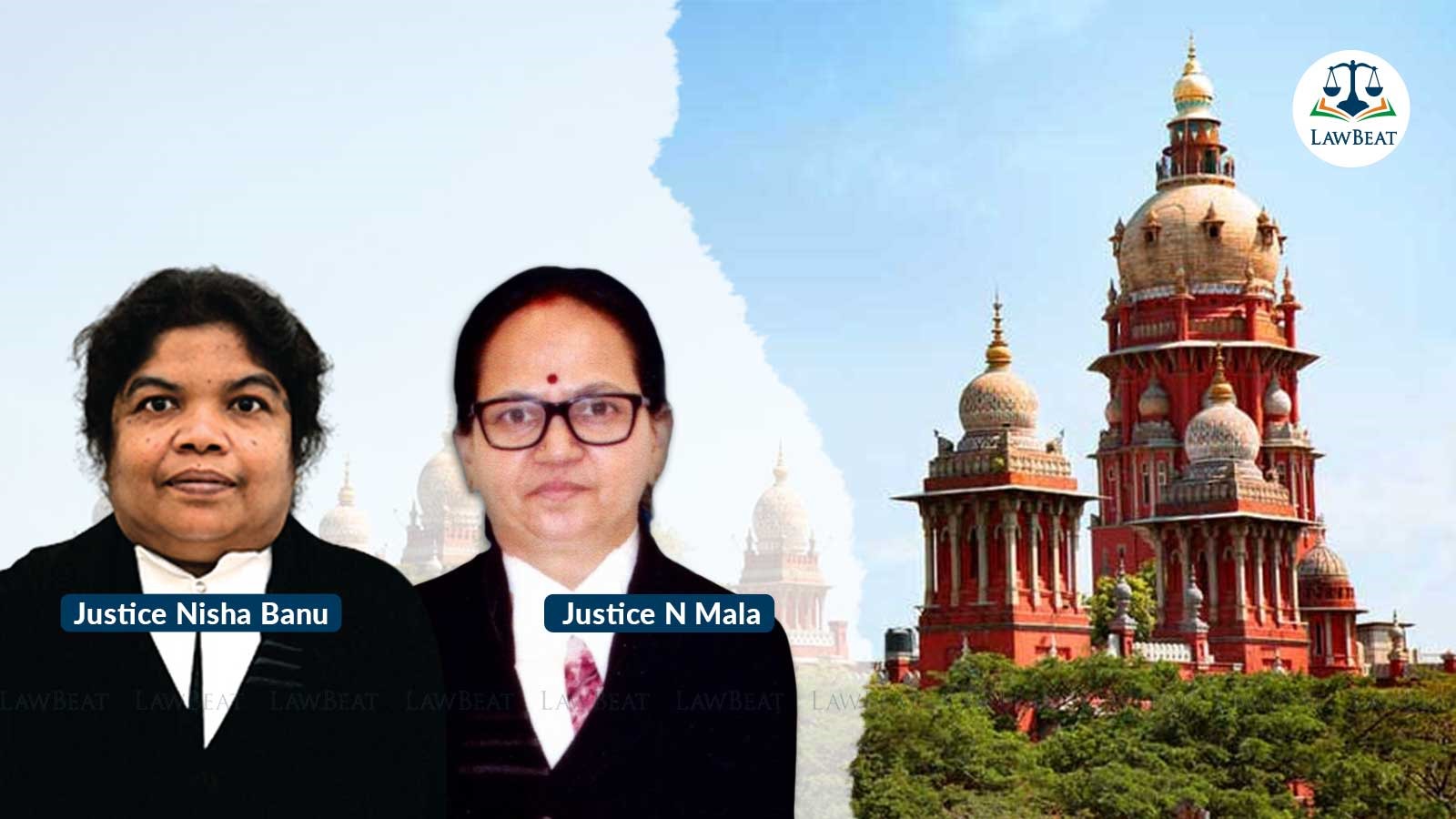No wonder Ambedkar's goal of Casteless, Classless Society is Still a Dream: Madras HC on Procurement of False Caste Certificates for Jobs

A division bench of Justice J Nisha Banu and N Mala gave contrary opinions on a plea moved by a retired bank employee to quash proceedings over his caste certificate
While dealing with a case where false caste certificates had been procured for getting a job, Justice N Mala of the Madras High Court expressed her dismay and observed that this fraud deprives the truly deserving persons of their rights guaranteed under the Constitution.
She said,
"The framers of our Constitution dreamt of an egalitarian society. The constitutional provisions and the scheme of reservation for the backward classes and the Scheduled Caste and Scheduled Tribe were meant to achieve the goal of equality, where all people irrespective of their religion, caste and sex would be treated equally with respect, dignity and honour."
"Hon'ble Supreme Court has held that people who indulge in fraud for procuring the community certificate commit fraud not only on the society, but on the constitution. No wonder that the dream of Dr.Ambedkar, of achieving the goal of casteless and classless society 50 years ago still remains a dream!" she added.
A division bench of Justice J Nisha Banu and N Mala was essentially dealing with a writ petition to quash the proceeding initiated by the Tamil Nadu State Level Scrutiny Committee against the petitioner who was a retired Bank of Baroda employee.
The petitioner was appointed to the Bank of Baroda in the year 1989, under the reservation category, earmarked for Scheduled Tribes. He had presented a caste certificate issued by Tahsildar, Attur as 'Hindu Kaatunayakam' community belonging to the Scheduled Tribe.
In 2015, in a writ petition filed by the bank, the high court directed the State Level Enquiry Committee to conduct inquiry pertaining to petitioner's caste certificate and pass orders on merit.
Meanwhile, during pendency of the proceeding in pursuance of court's order, the petitioner attained superannuation in 2018.
However, the terminal benefits including pension, leave encashment, commutation etc. were not paid to the petitioner. He moved the high court seeking the same. The high court then asked the bank to consider the claim of the petitioner, on merits, after providing due opportunity of hearing the petitioner.
In 2020, the State Level Committee found the petitioner's caste certificate false and withdrew his certificate. It held that he belonged to the 'Hindu Man ottar community' and not the 'Hindu Kaatunayakken community'.
Then, fearing that along with the retirement benefits that accrued out of his services, his provisional pension could also be stopped, the petitioner filed the present writ petition to quash the order of the State Level Committee mainly on the ground of violation of the principles of natural justice alleging that he was not provided with effective opportunity to produce evidences to defend his case.
In a split verdict, Justice Banu observed,
"The menace of unscrupulous individuals manoeuvring the system to obtain false caste certificates and securing admissions to education institutions and employment in Government and public sectors effectively depriving the constitutional rights of deserving communities had been a challenge for public administration for many reasons."
However, she added that an O.M. dated 24.12.2020 of the Lok Sabha Secretariat (Parliamentary Committee on the Welfare of Scheduled Castes and Scheduled Tribes) stipulated 1995 as the cut-off date from which verification process to check the veracity of the caste certificates of candidates availing reservations shall be taken up.
She stressed that it also contemplated immediate verification of the truthfulness of caste claims for new admissions/appointments under the constitutional rights of reservations to the vulnerable communities. "The decision to limit the period of exercise to 25 years preceding the date of the issue of O.M. is a just and fair balancing act in the light of the observations in the Kumari Madhuri Patil's case," she underscored.
Therefore, while stating that "for the appointments that happened before 1995, it is not open for the Central Government, State Government and Public Sector Undertakings to deny continuous employment or post retirement benefits on the basis of a post facto finding of falsity of claims or doubtful caste/community certificates presented at the time of appointments," Justice Banu held that the proceedings of the State Level Committee were of no consequence to the facts and circumstances of the present case.
Accordingly, she directed the bank to pay all retirement benefits that accrue on the petitioner, within a period of eight weeks from the date of the order.
On the contrary, Justice N Mala observed that the O.M. dated 24.12.2020 (mentioned above) proceeded on a misconception that the Judgment of the Supreme Court in Kumari Madhuri Patil Vs. Addl. Commissioner in 1995 was prospective in operation.
"It is to be seen, if mere delay in initiating and concluding the proceedings by the State Level Scrutiny Committee would validate an act of fraud. It is to be noted that when fraud is perpetrated, the parameters for consideration would be wholly different," she stressed.
"Fraud vitiates everything and therefore there cannot be a cut off date for verification of the community certificates, tainted with fraud. Consent to the self serving interpretation given to the O.M. by the petitioner would be a fraud on the constitution itself," held Justice Mala.
Therefore, while observing that in the present matter, the State Level Scrutiny Committee-III had meticulously dealt with all the materials placed before it and had concluded that the community certificate produced by the petitioner was incorrect, Justice Mala held cancellation of the petitioner's certificate justified and confirmed the same.
Case Title: V.Perumal v. Tamil Nadu State Level Scrutiny Committee – III and Others
